The Best Nighttime Skin-Care Routine

We’ve all seen the studies about why sleep is so important — a full eight hours keeps our bodies and brains more fit, happy, and focused. As it turns out, the effects of sleep on our skin are oddly similar to its effects on our bodies; we can actually wake up with a healthier glow after a night’s rest.
Related: The Best Way To Get Rid Of Acne Scars
Here’s how it works: While we lay sleeping, our cells go into overdrive to help repair the damage incurred during the day (from contact with environmental pollutants and UV radiation, for example). Our blood vessels dilate, allowing an increased flow of nutrients and oxygen to the skin, which helps stimulate the removal of toxic cellular products. Research shows that our cells even regenerate faster while we’re sleeping.
Related: This Is What Female-Directed Porn Looks Like
Cells do this work whether or not we take care of our skin. But, think of the time before you go to bed as an opportunity to feed your skin cells the stuff they need to optimize healing. You can pump ‘em with antioxidants to fight UV and free-radical damage, hydrate for improved barrier function and less flakes, regulate oil production to quell congestion and zits, minimize pigmentation…the list goes on. Or, at the very least (on those nights when you’re not in bed until the wee hours) you can wash off the day’s grime to create a clean slate for your cellular system.
Newsletter: The Yodel
Trusted news and daily delights, right in your inbox
See for yourself — The Yodel is the go-to source for daily news, entertainment and feel-good stories.
Related: What Going Paleo Did To My Body
To figure out how to optimize cellular repair for different skin conditions, we talked to Drs. Melanie Palm (a dermatologist and assistant clinical professor at the University of California, San Diego) and Jessica Wu (a Los Angeles-based dermatologist and author of Feed Your Face). They assured us that the only truly essential steps to late-night skin care — no matter your skin condition — are cleansing and putting on an eye cream.
Related: Celeb Transformations That Will Make Your Jaw DROP
Read on for the scoop on how to optimize your skin-care routine at night, and wake up to a happier complexion.
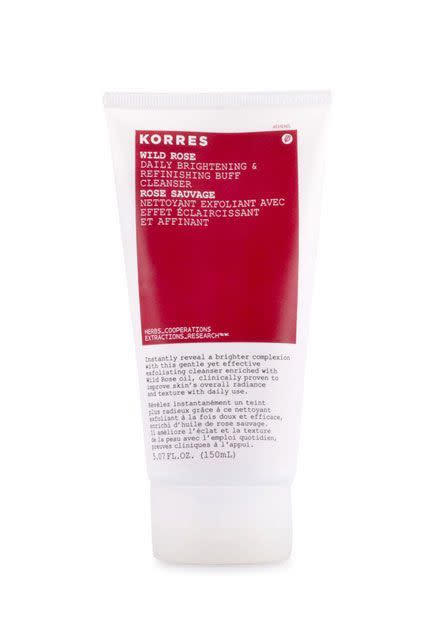
Dull
If your skin is looking lifeless, it’s likely not just because you’re tired. It could be that your top layer of skin (the stratum corneum) is not exfoliating correctly — a circumstance that can wipe out the skin’s luster. To help regain that bright, glowy quality, boost your skin’s natural tendency to regenerate at night by exfoliating, hydrating, and delivering a few key ingredients before catching some zzz’s.
Related: Banish Blackheads With These Tricks
Korres Wild Rose Daily Brightening & Refining Buff Cleanser, $28, available at Sephora.

To help rid the skin of excess dead cells, Dr. Palm suggests using a brush and a salicylic acid cleanser to help break down the cell-to-cell barrier and lift the top layer of skin. She warns not to overdo it, though; aggressive exfoliation can cause skin to become oily, irritated, and acne prone. So, don’t cleanse with a brush more than once a day.
Clarisonic Mia 2 Skin Care Cleansing System, $149, available at Ulta.

The skin’s surface isn’t its the only possible dullness factor; often, dull skin isn’t getting hydrated properly, either. After cleansing, apply products that will hydrate and brighten, such as peptides (which can help with the overall smoothness of the skin) and enzymes (which can help break down dull skin, rejuvenate, and give your complexion a glow).
Related: Which Kylie Lip Kit Is Right For YOUR Skin Tone?
Om Aroma & Co. Pumpkin Seed Renew Serum, $58, available at Om Aroma & Co.
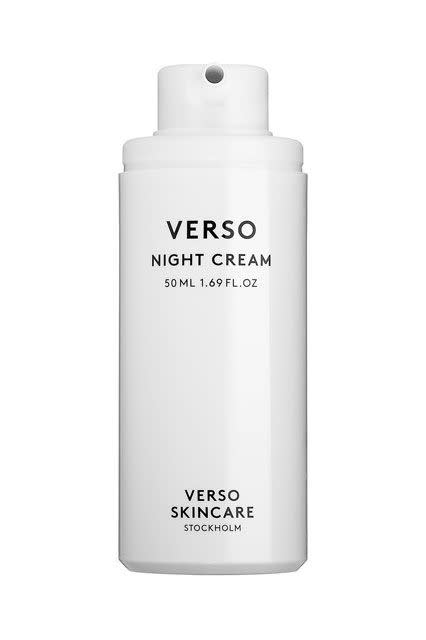
Finally, Palm suggests practicing patience. Stick with your face-brightening nighttime routine for a few weeks. It will often take that long to see true results if you’re using over-the-counter products — and even longer (two to three months) if you’re using prescription-strength topicals.
Verso Skincare Night Cream, $100, available at Sephora.
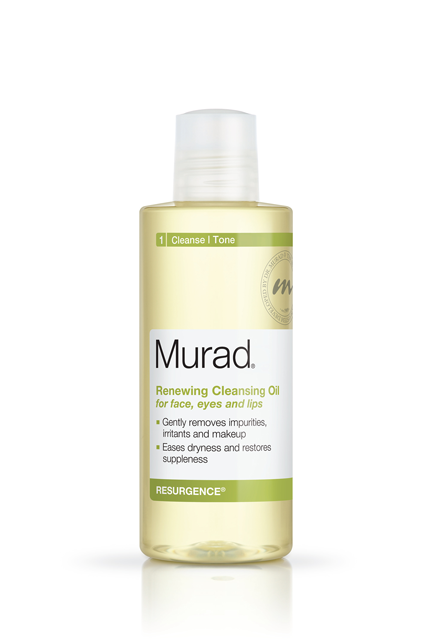
Dry Skin
The PM plan for dry skin is pretty straightforward: Clean your complexion of the day’s grime, pollutants, and leftover sunscreen. Then, pump it with super hydrators and lock that moisture in.
Those with dry skin may find it helpful to perform a gentle two-step cleanse, first using an oil to remove their makeup…
Murad
Renewing Cleansing Oil for Face, Eyes & Lips, $32, available at Nordstrom.
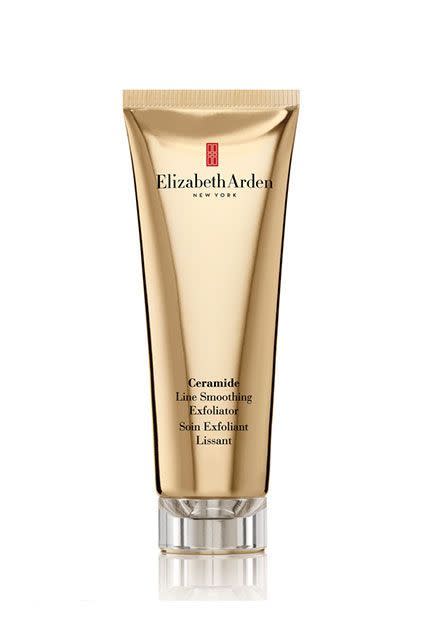
And for step two? While any gentle cleanser that won’t strip the skin can be a good option, Dr. Palm particularly likes cleansers stocked with ceramides — the building blocks that help restore the skin barrier.
Elizabeth Arden Ceramide Purifying Cream Cleanser, $29.50, available at SkinStore.

After cleansing, both Wu and Palm recommend delivering water right back to the skin by spraying it with a microfine mist of plain H2O.
Avène Thermal Spring Water, $18, available at Drugstore.com.
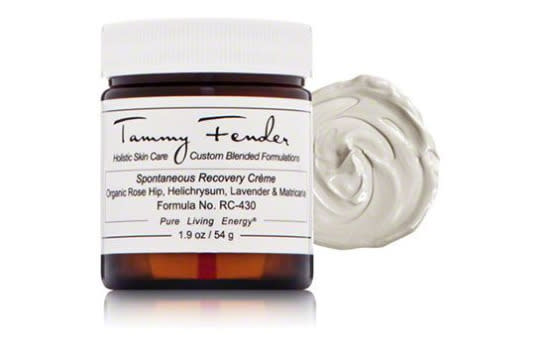
Next, lock that soothing blast of water into the skin by applying a moisturizing cream made with hyaluronic acid — a molecule that can attract hundreds of times its volume in water — to seal moisture into the skin.
Tammy Fender Spontaneous Recovery Creme, $165, available at Dermstore.
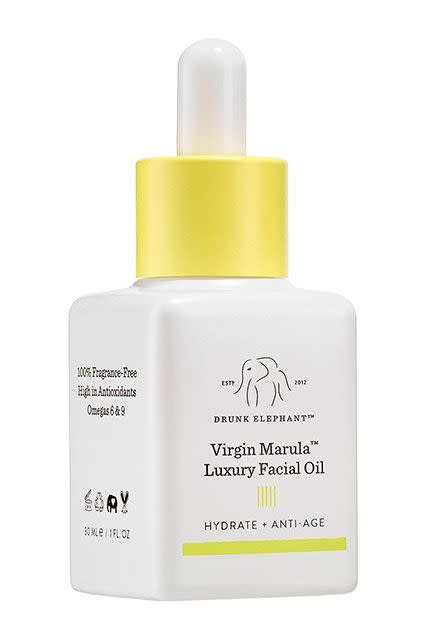
Not into creams? Face oils like this one from Drunk Elephant are great for dry skin. It’s super-hydrating, but absorbs quickly.
Drunk Elephant Virgin Marula Luxury Facial Oil, $72, available at Sephora.

If you have a few extra minutes to dedicate to Operation Hydration at night, apply a moisturizing serum before your cream or try adding a hydrating mask into the mix a couple of times a week. Dr. Wu notes that these masks can help seal in moisture: “It’s like deep-conditioner for your skin,” she says.
Wilma Schumann Oxygen Moisturizing Serum, $56, available at WilmaSchumann.com.
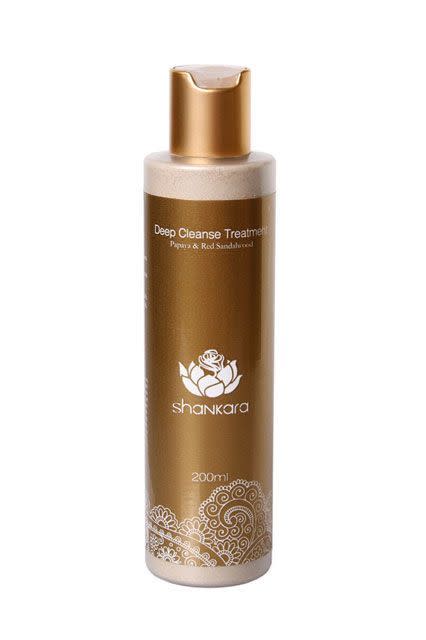
Oily Skin
Looking to avoid the grease-bomb look during the day? Optimize your nighttime skin-care routine to regulate oil production by focusing on cleansing and feeding your skin nutrients that don’t trigger even more sebum. As Wu points out, those with oily skin tend to have larger pores, so a big part of regulating oil production is getting — and keeping — your skin clean.
Dr. Palm recommends cleansers with either salicylic acid (a beta-hydroxy acid) or sulfur and clays, because they typically sequester oil and rid skin of makeup and dirt. “Salicylic acid is what we call a folliculocentric — a concentrate within the hair follicle and the oil gland; it helps regulate and calm down overly oily skin and helps control breakouts as well,” Palm says, adding that anti-inflammatory sulfur- and clay-based cleansers can achieve similar results.
Shankara
Deep Cleanse Treatment, $50, available at Shankara.

Added oil production also means a heightened risk of clogged pores. So, Dr. Palm likes cleansing tools like a konjac sponge or brushes for cleaning oily skin. However, she warns that these tools’ effects can be counterproductive if used more than once a day, “You can get a paradoxical increase in oil production from stimulating the skin too much,” she says. Dr. Wu also suggests exfoliating a few times a week to help keep pores clear.
Another key weapon in regulating oily skin? Retinoids and retinols, which help control oil production and the stickiness of skin cells within the hair follicle, Dr. Palm says.
Boscia Konjac Cleansing Sponge with Bamboo Charcoal, $15, available at Sephora.

A moisturizer may not always be necessary for those with oily skin. However, when dry patches surface, a non-comedogenic, light moisturizer can hydrate the skin without clogging pores.
Those with oily skin can generally use retinols and acids like AHAs and BHAs without compromising the skin barrier function, but Dr. Palm advises they steer clear of vitamin E or squalene-centric products, since those have a tendency to increase oil production. And, while ascorbic acid (vitamin C) itself isn’t likely to throw oil production into overdrive, Palm notes that many vitamin-C serums deliver the antioxidant in an oil carrier, which can potentially make oily skin worse.
Decleor Paris Ylang Ylang Purifying Night Balm, $73, available at Beauty.com.
For more of our picks, visit Refinery29!
By: Erika Stalder
Solve the daily Crossword

